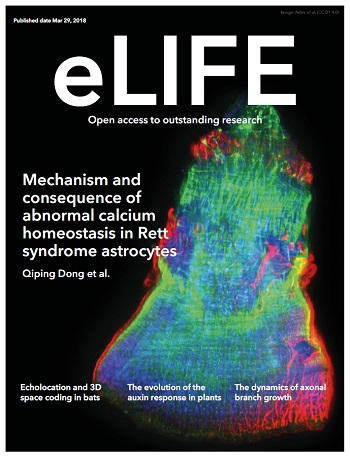Hsp90伴侣的已知未知。
IF 6.4
1区 生物学
Q1 BIOLOGY
引用次数: 0
摘要
分子伴侣通过协助蛋白质折叠、激活、降解和应激保护,是维持蛋白质稳态的重要蛋白质。其中,热休克蛋白90 (Hsp90)在真核生物中作为一个重要的蛋白质平衡中心而突出,伴随着数百个“客户”(底物)。经过几十年的研究,关于Hsp90分子功能的几个“已知的未知”仍未得到解答,这阻碍了治疗癌症、神经退行性疾病和其他疾病的合理药物设计。我们强调了三个基本的开放性问题,回顾了每个问题的现状,并讨论了新的机会,包括单分子技术,以回答Hsp90伴侣的已知未知。本文章由计算机程序翻译,如有差异,请以英文原文为准。
The known unknowns of the Hsp90 chaperone.
Molecular chaperones are vital proteins that maintain protein homeostasis by assisting in protein folding, activation, degradation, and stress protection. Among them, heat-shock protein 90 (Hsp90) stands out as an essential proteostasis hub in eukaryotes, chaperoning hundreds of 'clients' (substrates). After decades of research, several 'known unknowns' about the molecular function of Hsp90 remain unanswered, hampering rational drug design for the treatment of cancers, neurodegenerative, and other diseases. We highlight three fundamental open questions, reviewing the current state of the field for each, and discuss new opportunities, including single-molecule technologies, to answer the known unknowns of the Hsp90 chaperone.
求助全文
通过发布文献求助,成功后即可免费获取论文全文。
去求助
来源期刊

eLife
BIOLOGY-
CiteScore
12.90
自引率
3.90%
发文量
3122
审稿时长
17 weeks
期刊介绍:
eLife is a distinguished, not-for-profit, peer-reviewed open access scientific journal that specializes in the fields of biomedical and life sciences. eLife is known for its selective publication process, which includes a variety of article types such as:
Research Articles: Detailed reports of original research findings.
Short Reports: Concise presentations of significant findings that do not warrant a full-length research article.
Tools and Resources: Descriptions of new tools, technologies, or resources that facilitate scientific research.
Research Advances: Brief reports on significant scientific advancements that have immediate implications for the field.
Scientific Correspondence: Short communications that comment on or provide additional information related to published articles.
Review Articles: Comprehensive overviews of a specific topic or field within the life sciences.
 求助内容:
求助内容: 应助结果提醒方式:
应助结果提醒方式:


